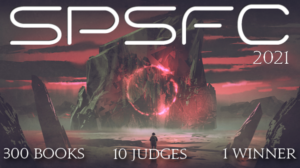
I’ve finished a year of judging for the first annual Self-Published Science Fiction Competition, and it’s been both fun and instructive. I’ve learned a lot of things about myself as a reader, about slush pile reading, and about organizing a contest with such massive scale. So with this year’s competition in the books and the champion crowned, let me reflect a moment on my takeaways from the first SPSFC. If you’re not so interested in my reflections, scroll down for my personal top ten SPSFC books.
I tried 42 different books as an SPSFC judge, and if there’s anything I learned about myself as a reader, it’s that prose matters to me far more than I thought it did. This year, we structured our first round such that each judge read 10-20% of thirty different books before making our first cuts. I wasn’t sure how this would work, because there are a whole lot of stories where 10-20% is insufficient to get a general idea of what to expect (and indeed, one of my favorites from this year was a book that I didn’t vote to continue after the first pass). But even if I hadn’t read enough to judge on story, I generally found 10-20% more than sufficient to tell whether I enjoyed the writing style enough for me to immerse in the story itself. With just one exception, the books I wasn’t excited about at 20% were books I didn’t like at 100% (and that exception was a case of subgenre fatigue—not difficulty with the writing style—that had me vote “‘no”). And while there were a couple strong starts that fizzled, the books that engaged me early tended to be my highest scores overall.
I also found that my four-star books tended to get the prose to invisible and let the characters or plot take center stage. Unlike in my Hugo reading, there weren’t many instances of highlighting particularly beautiful passages—clean and professional was the order of the day. Which is not to say there weren’t exceptions. Dog Country stood out for its terse, clipped style that so well complemented its neurodivergent lead and military plot, and Dusk Mountain Blues and The Nothing Within did excellent work capturing the rural dialects of their lead characters. I’ve never considered myself a prose connoisseur, and there is plenty of room for a style that effectively communicates the scenes while keeping the story moving, but my enjoyment of those exceptions make me hope for more along those lines in next year’s competition.
And discussion of exceptions brings me to my next major observation: it is very hard to narrow 300 books down to one winner in just a single year of competition. I was very pleased with how SPSFC’s structure allowed quality books a second chance even if they weren’t the top favorite of the first-round judges—three of the top four overall had been just second-or-third-place in their first-round group!—but I also felt that, with so many judges reading each book, the competition selected for polish and broad appeal over books that were truly striking.
And there’s something to be said for polish and broad appeal! But it’s not hard for me to find a book that will deliver a solid 7/10, and it is much harder for me to find a story that will stick with me. A couple of my favorites from SPSFC really went out on a limb but fell early in the competition because that limb generated a mix of extremely high and extremely low scores that pushed the average below the safe four-star reads. I’m hopeful that a few tweaks to the competition structure might allow for those outstanding books with narrower appeal to progress farther. Obviously, broad appeal will be necessary to win the competition. But encouraging reviewers to set aside a book that simply isn’t to their style, rather than saddling it with a low score that was more about personal preference than about quality, should be a step in the right direction.
The last thing that my first year of SPSFC judging really hammered home is something that I knew in my head but didn’t know in my heart: with tastes varying as widely as they do, there are some real gems that fall short of the finals. Maybe they get unlucky with a judge that doesn’t appreciate their style, maybe they get stuck in the same slush pile as the best book in the competition. Both happen frequently, and it’s easy to see examples of both this and its inverse. We’ve already had two authors in this competition strike traditional publishing deals, and neither were finalists (though one made the finals of last year’s SPFBO). My favorite book of the entire competition is one that didn’t make it out of the first round, and when we turn to our sister fantasy competition, there’s the famous case of Senlin Ascends–which opens one of my favorite series of the last decade–falling short in the semifinals.
Even knowing this, I was surprised by how many of my favorite books in the competition failed to make deep runs. But the simple fact is that everyone looks for different things in their reading, and even the best books have readers who don’t connect to them. I’ve found myself on multiple occasions scratching my head about Hugo finalists for goodness sake. And we can see throughout the history of both SPFBO and SPSFC that scores tend to drop in the finals. Why? Because an individual reader is more likely to enjoy the book that they hand-pick out of their slush pile than the book that someone else hands them out of a different slush pile.
Point is, there is quality up and down this competition, and a book failing to make the finals is no cause to remove it from the TBR. My goal as a judge is to find those hidden gems and introduce them to others. And to that end, now that the first competition is over and the winner has been named, let’s have a look at my personal top ten books from the first annual SPSFC.
Tied for Tenth Place: Dusk Mountain Blues by Deston J. Munden (Eliminated in the Semifinals, Top 30 Overall) and Captain Wu by Patrice Fitzgerald and Jack Lyster (Finalist, Third Overall)
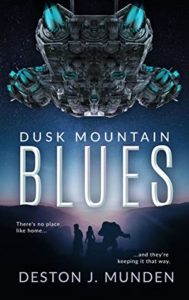
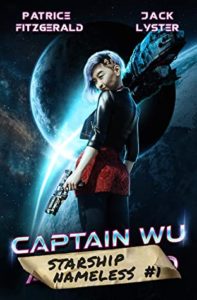
For my final place in the top ten, I just couldn’t choose between a pair of action-packed novels with strong Firefly vibes. Both featured a tight-knit group on the margins of society and the wrong side of the law trying to survive a new threat to their existence, both had plenty of action, and both had dialogue that underscored the marginalization of the protagonists (that final element came out much more strongly in Dusk Mountain Blues, but it’s a plus in both cases). I thought that Captain Wu did a better job at keeping the action sequences snappy and balancing them with the remainder of the story, whereas Dusk Mountain Blues had more character depth and provided a proper ending instead of a sequel hook that left the story in midair. I certainly had my critiques of both books, but they were entertaining reads that I wholeheartedly recommend to readers who really enjoy action-packed stories about plucky gangs up against powers greater than themselves.
Ninth Place: Sequela by Cleland Smith (Eliminated in the First Round, Top 100 Overall)
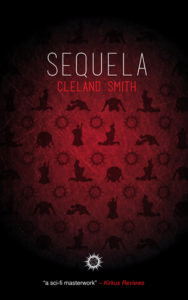
Part corporate thriller, part social satire, Sequela is an audacious tale set in a near(ish)-future London in which designer sexually-transmitted viruses have become fashion statement and status symbol. It follows a scientist making his fortune in virus design, the corporation riding his work to international notoriety, and a handful of characters opposed to the trend and seeking their chance to stop it. It’s a story that’s willing to live with real life messiness—there’s not a single character that’s entirely sympathetic, nor is there a moment of convergence that brings every plot thread together and sees all the villains get their comeuppance. But it’s well-paced and engaging from the start, delivering several well-rounded characters that had me enjoying the read despite quite a bit more sex than I prefer in my fiction.
Eighth Place: Harvest by Olga Werby (Eliminated in the First Round, Top 100 Overall)
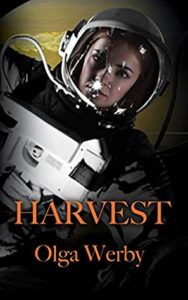
Harvest is a theory-heavy first contact novel with a healthy dose of body horror sprinkled in. The pacing is bound to elicit strong opinions, with action-seekers frustrated by a whole lot of lecturing that will nevertheless appeal to readers who enjoy devoting time to really trying to understand the alien threat. Much of the story takes place during the journey to make initial contact, and features a group of academics trying to use the little they know about the extraterrestrials to figure out what to expect when they make contact. It’s an unusual structure, but I loved it! The theorizing was fascinating, and as a former academic myself, I found that it really captured the flavor of conversations among researchers discussing their focus areas. But I did feel the prose was missing a bit of vibrancy to really draw me in to the scarier scenes—otherwise this may well have vaulted all the way into my top three.
Seventh Place: Age of Order by Julian North (Eliminated in the Semifinals, Top 30 Overall)
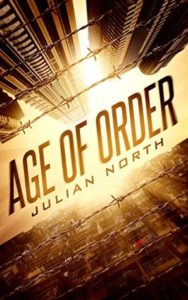
If you enjoy dystopian young adult fiction, Age of Order is well worth the read. There’s a likable protagonist, an engaging story, and strong, if unsubtle, social commentary. The main antagonist is a bit flat, robbing the big finish of some depth, but the secondary antagonists are excellent, and there’s real power in the penultimate climax.
Sixth Place: Day 115 on an Alien World by Jeannette Bedard (Eliminated in the First Round, Top 100 Overall)
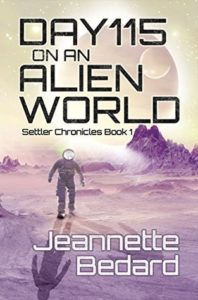
Day 115 on an Alien World is a well-constructed murder mystery in space. Despite dropping bodies in chapter one, it takes a while to find its footing, but from about 30% to 80%, it is impossible to put down. The biggest weakness is a tendency toward stilted dialogue that makes both the villain and one of the red herrings feel far more over-the-top than they were probably meant to be. That kept it out of my team’s semifinal group, but the underlying mystery was good enough that I’d have put it up against not just the semifinalists but quite a few of the finalists as well.
Fifth Place: Dead Star by Simon Kewin (Eliminated in the Semifinals, Top 30 Overall)
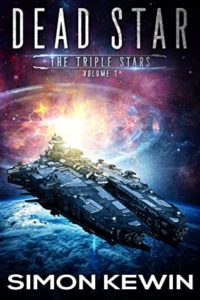
Dead Star is a fast-paced planet-hopper of a novel featuring a pair of revolutionaries seeking the secret history that could bring down a terrifying galactic empire. I’m not sure all the details always fit together in the action scenes, but it was written in such an engaging style that it was impossible to not keep turning the pages to find out what happened next. Fair warning: this one opens a trilogy, and the first book isn’t going to answer every question.
Fourth Place: The Last Shadow by J.D. Robinson (Eliminated in the Semifinals, Top 30 Overall)
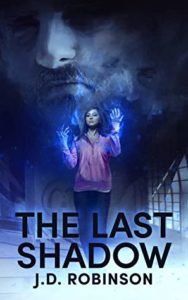
I mentioned earlier that there was just one novel that I hadn’t voted to continue past 20% that still ended up on my favorites list, and this is it. The Last Shadow opens feeling like so many other SFF detective novels, complete with a grizzled gumshoe with a tragic past taking one last case before retirement. It’s not a badly executed opening, just one that had me feeling I’d read it before. But as it progresses, it leans into the weirdness, with a slower pace and eerie vibes that remind me of Fringe in all the best ways. This is one of just three books (out of 42) that received scores of at least 6.5/10 from every judge on my team (we were notorious for disagreements amongst ourselves in this competition), and it was Team Meteor’s top semifinalist, but it fell short of the finals due to low scores from its third semifinal judging team. Varied taste, of course, was a theme throughout the competition, but this is a book I’d recommend to readers who enjoy detective stories but don’t mind something quite a bit weirder and more atmospheric than average.
Third Place: Dog Country by Malcolm F. Cross (Eliminated in the Semifinals, Top 30 Overall)
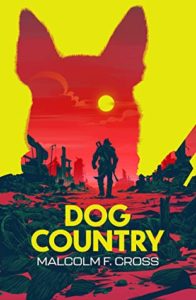
Dog Country was unsurprisingly one of the more divisive books in the competition, with the most 9+ scores in the first two rounds coupled with a sprinkling of 6s and 7s and a pair of DNFs that ultimately kept it out of the finals. It had the best opening of any book I read as a judge, with nearly half the novel serving as a character study of a genetically engineered anthropomorphic dog soldier who can’t seem to relate to neurotypical civilians. The clipped prose style fit the lead perfectly, and I found the character work gripping. But it’s also a plot-light dive into the mind of a character that many won’t find relatable, so it’s no surprise to see some readers bounce off even what I found a fantastic start. And there is a wobble in the third quarter when the story shifts back to war, though it comes together for a solid conclusion that keeps it among my favorites in the competition.
Second Place: Iron Truth by S.A. Tholin (SPSFC Winner)
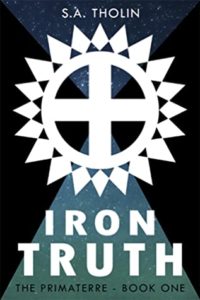
Iron Truth is a slow-building military epic, and it absolutely rewards readers who have the patience for slow builds. Military sci-fi isn’t my preferred subgenre, and while there’s plenty of immediate danger on the highly classified mission to a dangerous, backwater planet, the opening special forces plot didn’t really grab me. But once they cross paths with the woman-out-of-time from the opening chapter, it turns into a fascinating epic with plenty of mystery, horror, and romance. There’s secret history, there’s mysterious danger that the locals refuse to fully explain, and there’s some fantastic character work. This is a series-opener, so it doesn’t tie up every single loose end, but there are absolutely enough complete arcs to make this one satisfying in isolation.
First Place: The Nothing Within by Andy Giesler (Eliminated in the First Round, Top 100 Overall)
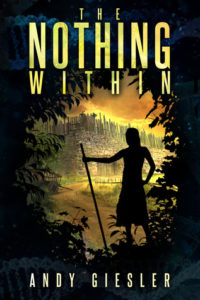
The Nothing Within is the only SPSFC entry I had read before the competition, and nothing I read as a judge topped it. Severe genre mismatch with one of its first round judges led to an early exit—despite an exemplary score from one of its other first round judges—which only serves to confirm my claim that there’s quality up and down this competition. The Nothing Within is a post-apocalyptic story narrated by an itinerant storyteller recounting both her own life and the life of the Amish woman who lived through the end of the world and built a strictly anti-technology community of survivors. The outstanding narrative voice is enough to carry the story on its own, but the plot has enough twists and turns that it doesn’t have to get through on voice alone. This isn’t just my favorite book from the first SPSFC, it’s one of the best books I’ve read in the last two years. It isn’t the only book on my pre-SPSFC TBR that was eliminated before it made it to my judging team, and I hope to get a chance to dip in to some of the others, but it’s hard to imagine another entry that tops this one.
